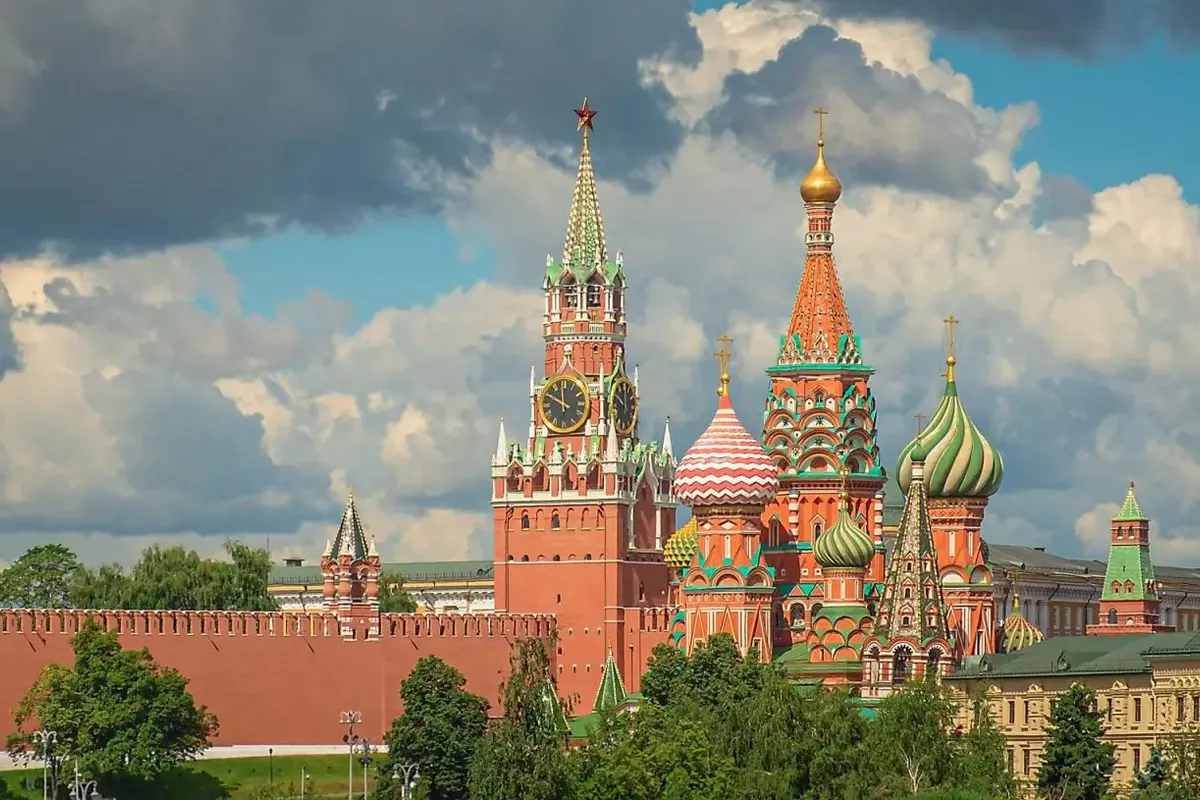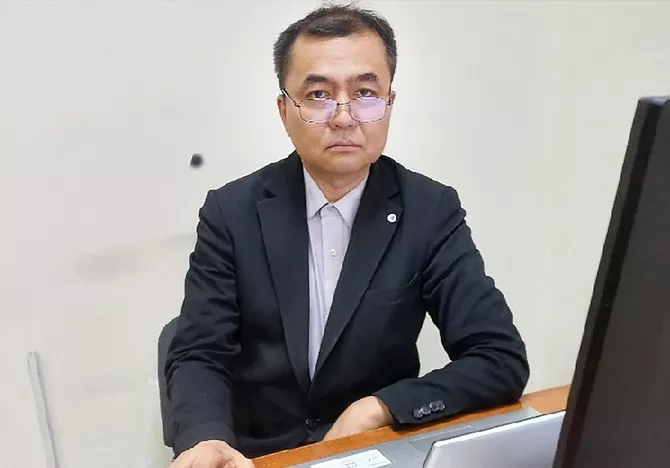
photo: Alliance for Security Democracy
Tensions are mounting across the post-Soviet space. Behind the seemingly neutral diplomatic language, strategic calculations are becoming increasingly apparent. Russia, which long positioned itself as a pillar of stability in the CIS, is now employing tools of influence that raise concern among its regional partners. Heightened pressure on migrants-including Azerbaijanis-the stalled investigation into the downing of the AZAL civilian aircraft, and restrictive economic measures cloaked in technical or sanitary justifications are all prompting serious questions.

What is really happening, and how are these developments perceived by neighboring countries? The Caspian Post speaks with Marat Musuraliev, a Kyrgyz expert on international relations and economics, about the transformation of the political climate in the CIS, new mechanisms of pressure, regional reactions, and the prospects for cooperation in a shifting geopolitical architecture.
- How do you assess the evolution of cooperation among CIS countries in recent years? Would you say the nature of this space is changing-and if so, in what direction?
- Unfortunately, it must be stated that we are no longer dealing with isolated incidents involving the Russian authorities, but with a series of recurring events targeting not only Azerbaijan but also citizens of other CIS states. As the saying goes: once is a coincidence, twice is a pattern, three times is a system.
Azerbaijan has gone above and beyond to resolve the tragic incident involving the downing of an AZAL civilian aircraft by Russian air defenses, which led to the deaths of dozens of passengers from various countries. Numerous official statements, media coverage, and diplomatic appeals from Baku have all been aimed at encouraging Moscow to pursue a diplomatic resolution and an objective investigation. However, for more than six months, the Russian side has persistently ignored these efforts, refusing to accept responsibility or identify those accountable.
Russian military involvement in South Caucasus conflicts has been both constant and multifaceted. At times, Moscow supported one side, at other times another-through arms supplies, ammunition, or even direct military presence. This tactic aligns with the classic imperial policy of divide et impera-divide and rule. Regrettably, such behavior is characteristic of empires determined to preserve influence at any cost.
Not everyone remembers that on May 31, 1993, a delegation from the Russian Supreme Council arrived in Baku with an official appeal from Boris Yeltsin, requesting clemency for six Russian soldiers captured by Azerbaijani forces in Karabakh and sentenced to death. On May 12, 1993, the Azerbaijani Supreme Court’s Military Board had found them guilty of sabotage and the killing of over 30 Azerbaijani soldiers. Five-Konstantin Tukish, Yaroslav Evstigneev, Vladimir Kudinov, Mikhail Lisovoy, and Andrey Filippov-were sentenced to death. Senior Lieutenant Vladimir Simeon received 15 years. The verdicts were final and not subject to appeal. Nevertheless, following political negotiations, they were released.
As for the latest tragic events, the mass "detentions" of 50 Azerbaijani citizens in Russia have already led to two deaths and the hospitalization of three others with various injuries. This is not the first such incident-and unfortunately, likely not the last.
In June 2025, Uzbekistan’s Foreign Ministry formally delivered a protest note to Russia’s Foreign Ministry over beatings of Uzbek citizens by Russian law enforcement. These actions by Russia’s Ministry of Internal Affairs have become alarmingly routine, especially targeting foreign nationals living in Russia.
The underlying causes are complex. The Kremlin is unwilling to accept that Azerbaijan continues to demand accountability for the aircraft tragedy and the deaths of 38 people. Moscow is also displeased by Baku’s consistent support for Ukraine’s territorial integrity.
Similarly, Armenia’s sovereign decisions-to ratify the Rome Statute of the International Criminal Court and to suspend its participation in the CSTO-have provoked threats, irritation, and pressure from Russia. All of this confirms a harsh reality: Moscow still refuses to recognize the right of CIS countries to pursue independent foreign and domestic policies if those contradict the Kremlin’s interests.
- In times of intense global conflict, diplomacy faces serious challenges. Can tragedy become a tool of influence in international relations? And how can trust in diplomatic institutions and the truth be preserved in such situations?
- Unfortunately, the events are unfolding in precisely this alarming direction. The attempt to suppress the tragedy of a downed passenger plane and the deaths of innocent civilians at the diplomatic level has evidently failed. The information blackout did not hold. Now, it seems a harsher tactic is being deployed.
Strikingly, pressure is being applied not to the perpetrators but to the victims. The objective appears not to seek justice, but to silence dissent. This is a strategy of intimidation, coercion, and fear-an effort not only to erase the traces of the tragedy but to “reeducate” those who dared to speak out.
Beneath the restrained diplomatic language, tensions are escalating. If a behind-the-scenes “game” is underway, then it is dictated not by justice but by cold calculation. The real question now is: who will speak for those who no longer can? And will a new wave of repression rewrite the story to fit someone else’s narrative?
- Considering that Russia’s military campaign in Ukraine has lasted far longer than expected, what lessons can be drawn about structural problems in the foreign policy strategies of major powers? Can domestic measures, such as tightening migration policies, be seen as reflections of these external failures?
- The full-scale aggression against Ukraine (as referred to in UN General Assembly resolutions) has now entered its fourth year. Casualties number in the hundreds of thousands, with millions displaced. Despite having far fewer economic, military, and mobilization resources than Russia, Ukraine has mounted an effective resistance, approaching strategic parity.
Both sides have mobilized significant scientific and technological capabilities, which are rapidly being translated into new methods of warfare. Countermeasures often take six to twelve months to implement. The technologies employed by both Russia and Ukraine are now being studied in military academies worldwide, as this war has introduced unprecedented combat dynamics. Some elements were first seen during the 2020 Karabakh War-such as the integration of drones with other military branches-but in Ukraine, modified civilian drones have become systematic components of warfare, raising its technological level dramatically.
As of 2024-2025, the war has settled into a positional stalemate: minimal territorial shifts, high casualties. In chess terms, this is a stalemate. Russian society is beginning to grasp the futility and deadlock of this conflict.
In this context, governments predictably look for “external enemies.” Ethnic groups from CIS countries make convenient targets: they differ from the Russian majority in appearance, language, and culture. At the same time, many migrants live at a socioeconomic level comparable to-or even higher than-some segments of native Russians, due to their discipline and entrepreneurial drive.
This makes them ideal scapegoats for channeling public frustration and discontent.
- How do you assess Azerbaijan’s position in the situation surrounding the civilian aircraft incident? Is Baku’s measured response part of a long-term strategy or a reflection of the broader international context?
- Since December 2024, Azerbaijan has made every effort to resolve the tragedy through diplomatic channels. Yet Russia continues to shield the servicemen who fired on the aircraft and actively avoids a thorough investigation into the deaths of 38 people on board. Frankly, I’m surprised by the exceptional patience demonstrated by Baku. Maintaining such restraint is becoming increasingly difficult, as it risks causing frustration within Azerbaijani society itself.
Especially considering a troubling trend within Russia-under the guise of fighting crime, targeted pressure is being applied to ethnic minorities, including Azerbaijanis. In Yekaterinburg, the victims of a fatal raid were immediately branded as criminals, despite the adage that one should speak only good of the dead-or nothing at all.
But this is just the tip of the iceberg. Similar raids have affected Uzbeks in dormitories, Kyrgyz citizens in Moscow bathhouses, and now Azerbaijanis across Russia-not just in Sverdlovsk region. The violence is systematic, often arbitrary, and carried out with impunity. Officially it is framed as law enforcement, but in reality, these are ethnic purges.
This is taking place amid silent approval from ultranationalist and revanchist elements-whose roots trace back to the early 20th century “Black Hundreds.” The disturbing part is that law enforcement agencies now appear to be joining them. This suggests that the authorities are deliberately redirecting protest potential toward “convenient targets”-migrants and national minorities.
Thus, the line between strategic restraint and dangerous leniency is no longer rhetorical. Azerbaijan has shown maximum patience. But in the face of growing chauvinism and Moscow’s inaction, continued silence may be misinterpreted as something other than wisdom.
- In the era of digital and technological competition, have approaches to international influence shifted? Are we seeing new forms of geopolitical pressure expressed not through open confrontation, but through technical or informational constraints?
- We’ve already seen precedents. In 1994, for example, active hostilities in Karabakh were suspended under the Bishkek Protocol. Today, however, the preferred tactic is different: the strategy of the watchful observer-subtle diplomacy, muted declarations, and coded signals.
It is telling how quickly consequences now follow seemingly neutral gestures. Take the recent example: when Türkiye announced a new group of Kyrgyz drone operators to be trained on Bayraktar UAVs, within ten days Russia imposed import restrictions on certain Kyrgyz agricultural products. These “coincidences” are nothing more than tools of geoeconomic pressure masked by technical or sanitary justifications.
All of this indicates that the era of overt decisions is fading-replaced by an age of calculated hints and diplomatic maneuvering in the shadows.
Share on social media